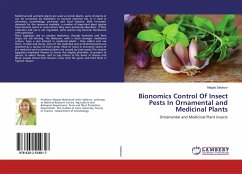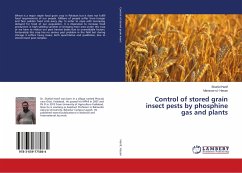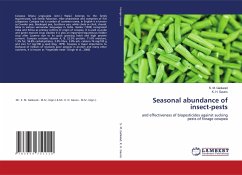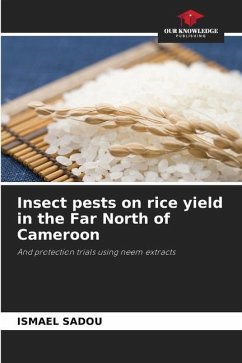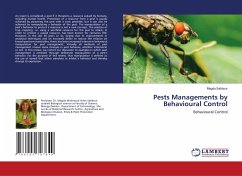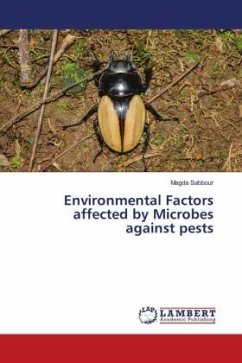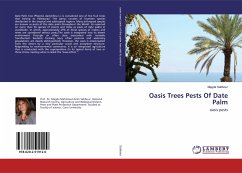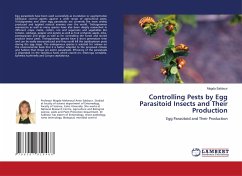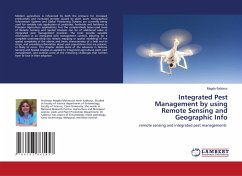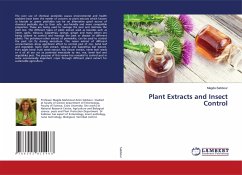
Plant Extracts and Insect Control
Versandkostenfrei!
Versandfertig in 6-10 Tagen
36,99 €
inkl. MwSt.

PAYBACK Punkte
18 °P sammeln!
The over use of chemical pesticides causes environmental and health problem have been the matter of concern so plant extracts which known as biocide or green pesticides can be an alternative good source of chemical pesticide due to their safe, eco-friendly and more compatible properties. These are being used to manage the pest and minimize the yield loss. The different types of plant extract used as biocides such as neem, garlic, tobacco, kappettiya, syringe, ginger and many others are being utilized to control and manage the pest or disease of different plants. The petroleum ether extract of ...
The over use of chemical pesticides causes environmental and health problem have been the matter of concern so plant extracts which known as biocide or green pesticides can be an alternative good source of chemical pesticide due to their safe, eco-friendly and more compatible properties. These are being used to manage the pest and minimize the yield loss. The different types of plant extract used as biocides such as neem, garlic, tobacco, kappettiya, syringe, ginger and many others are being utilized to control and manage the pest or disease of different plants. The petroleum ether extract of periwinkle, can be used to control the pest Uzi fly during sericulture. The neem extract of different concentrations show significant effect to control pest of rice, betel leaf and vegetable. Garlic bulb extract, tobacco and kappettiya leaf extract, Eve's apple latex/ fruit/ seeds extract, lilac flower extract, neem leaf/ seeds or it oil all are act as potential insecticide to tea, rice, betel leaf and vegetables pest. The purpose of this review has revealed to control pest in some economically important crops through different plant extract for sustainable agriculture.



